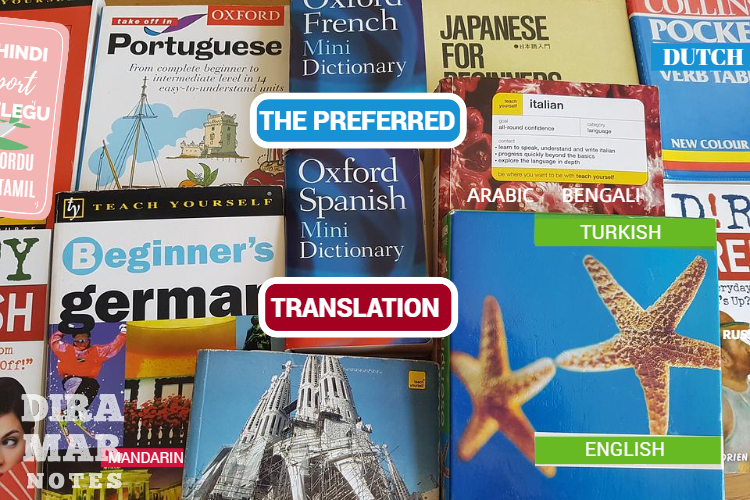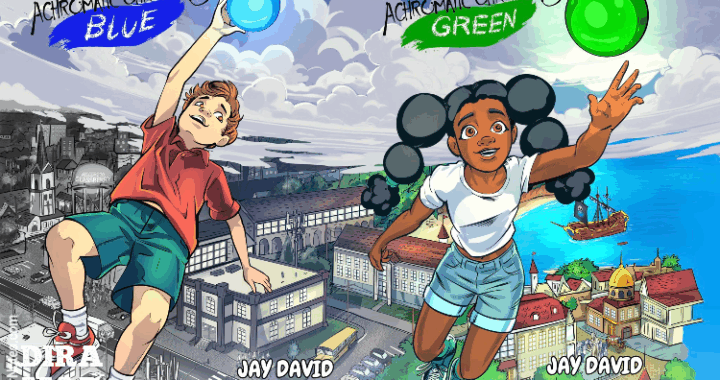
THE PREFERRED TRANSLATION
Streaming platforms provide the opportunity for foreign productions to bring their content to a global audience which means that we will probably see the translation of other languages.
Bringing their content on streaming platforms, especially those with global reach and not geographically restricted, requires them to offer their content in the language most of the viewers would understand. When it comes to movies and TV this requires dubbing of the content or having subtitles available. I imagine that this created job opportunities for voice actors and translators with the massive demand for them.
In this publication, I will share my views regarding the recent translations mostly from English to Spanish, but I imagine it would be a similar situation with the translation of other languages. For example, the dubbing of the Netflix series Squid Game from Korean to English.
LACK OF QUALITY CONTROL
The massive demand for streaming content caused a flaw in the normal production process. To get the job done and have something available on the platforms as soon as possible many production houses failed (or are still failing) at quality control.
The dubbing at times is horrible, especially the ones in Spanish. With the subtitles at times, you can spot automatic translations that don’t make any sense or even grammatical errors. I guess sometimes a human’s perspective is better than generic A.I. Wouldn’t you say so?
The dubbing from English to Latin American Spanish used to be good. Spanish is tricky because you have the Spanish dialects from Spain, and you have the many Spanish dialects from Latin America. Somehow, they managed to find a neutral ground with the dubbing where everyone was happy in the 80s and 90s. I grew up in that era where most of the popular entertainment I watched was dubbed in Spanish.
It wasn’t until the internet became popular in the late 90s and became somewhat accessible in Latin America and the Caribbean that most people got to see those. Remember internet cafes? Those used to be the place to be for many people looking into foreign content. Cable television existed yes, but the reality was that most of the population in many Latin American and Caribbean countries did not have access to it. It was mostly the rich and the high middle class that had cable television.
MORE AVAILABILITY, MORE EXPOSURE
What was available for most people was the regional TV stations that got some of the international programming dubbed in Spanish. If you are lucky, you got several signals for free. There were certain instances where local stations broadcasted the English version of some shows, but they were always the old ones like Fraggle Rock. Remember this one?
When I got the hear the original versions, I couldn’t stop myself from thinking how weird they sounded. The dubbing was so great in the cartoons back then. Recent translations are questionable and sound weird. I don’t know what is happening with producers of content, either they are letting A.I. take over or they are consciously choosing to focus on production with no quality control for cost-saving measures. The result is a final product that not everyone will consume.
These days I prefer to watch the content in the original language with subtitles. For the audience in the Americas and the Caribbean English, Spanish, and Portuguese are the main languages I think for dubbing. Maybe French and Dutch if they want to include parts of the Caribbean and if they have the budget for it. For my old TV shows especially the cartoons I would love to own the dubbed version I grew up with.
I have fond memories of watching Candy Candy, Heidi, Scooby Doo, Los Thundercats, He-Man, She-Ra, Las Tortugas Ninja Adolescentes Mutantes, Ghostbusters, Popeye El Marino, Inspector Gadget, Garfield, Wacky Races, Los Picapiedra, Los Supersónicos, Los Looney Tunes, El Pajaro Loco, Patoaventuras, Los Pitufos, El Sorprendente Hombre Aranja, X-Men, Dragon Ball, Inuyasha, Sailor Moon, Slam Dunk, Animaniacs, Los Simpsons, etc, etc. The list goes on and on.
Not everything was perfect but many people still fondly look back at the dubbed versions. The younger generation prefers to watch the original versions because the dubbed versions they get are just sad. Today it seems common practice in the West to have the lowest level of quality control and hire everyone first on the current recruitment checklist.
Fortunately, there is still hope for other parts of the world that are producing content. I would like for production houses to invest in more subtitles as dubbing may cost more as you would need to hire someone to translate the text and voice actors. If dubbing is an option, it makes sense to review the dubbing, wouldn’t it?
Have quality control measures in place. It can be cringe if not done right, especially with incorrectly translated expressions, sayings, or incorrectly translated lyrics. Know what to translate and what not. Especially when choosing specific dialects from the South American Spanish.
MAKE A CHOICE: SUBTITLES OR DUBBING?
If you are a content creator and you have content on a streaming platform, please make sure you have subtitles at a minimum and use the opportunity to reach a large audience. If it is possible to finance dubbing, do it. The most preferable option would be to have the original actors or singers do the dubbing or singing, but it is not always possible to do. With songs, you could request the composers do the song translation and have the original singers sing the translated version. The final product I am sure would be more cohesive and therefore more entertaining.
For dubbing any content there are capable people out there, in the West, they are just ignored because they may not fall within the current recruitment requirements. They may have a perfect voice and the ideal accent but they are of the wrong gender or race. Even though all you need for the job is your voice. No wonder the quality of their content has diminished so drastically. It is an opportunity for other parts of the world to take advantage of the opportunity.
Whether it is subtitles or dubbing hire the best for the job. It is that simple.
FINAL THOUGHTS
In the meantime, I will continue to explore more foreign content that offers subtitles. Once again please consider having at least subtitles in English or Spanish for your movies, series, documentaries, songs, interviews, etc. More and more people are looking into alternative entertainment. Many people like me are interested in foreign content and are willing to support it but we can’t do it if we don’t have a common ground to understand each other.
Music is the exception. Sometimes the melodies are so good you will listen or dance to them without understanding the lyrics but when it comes to films and series, the visual medium, it’s just different. The film may be great but If I can’t understand a word, it would be difficult for me to get invested and I would probably miss a lot of the plot as well. The least expensive method and probably the preferred choice I think would be adding subtitles to your content.
Reach more people. Win more hearts.




The quality of dubbing can be better. And for me it is a personal choice on a case by case basis. Sometimes I will choose the dubbed version if its good. Other times I’ll choose subtitles. On music I agree that it is indeed different. I will search for the translated lyrics eventually.
Jane!!
Hope you are doing well. Thanks a lot for sharing your views.
I do hope that the quality will improve at some point if the demand continues to increase as more and more people are looking into foreign content.
It is the perfect opportunity for translators to start their own business
Indeed!